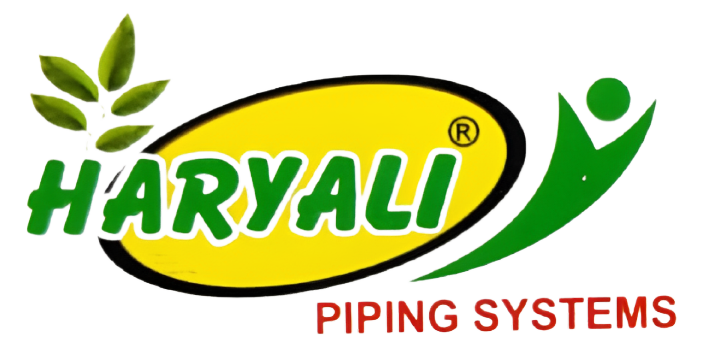The full form of HDPE is High-Density Polyethylene. HDPE pipes are made through a process known as extrusion and in this process pipes have emerged as one of the most sought-after materials in a wide range of industries. As technology evolves, businesses are consistently searching for innovative solutions to reduce costs, enhance performance, and ensure longevity. That’s where HDPE pipes from Polyshakti Pipe step in, offering exceptional strength, flexibility, and versatility for modern piping solutions.
In this blog, we will explore the remarkable features of HDPE pipes and their diverse applications, demonstrating why they are a top choice for many industries today.
What Are HDPE Pipes?
HDPE pipes are made from high-density polyethylene, a thermoplastic polymer known for its high strength-to-density ratio. These pipes are commonly used in the transport of water, gas, and wastewater, along with other fluid and material handling applications. HDPE pipes are considered a more advanced alternative to traditional piping materials like metal, PVC, and concrete.
At Polyshakti Pipe, we are proud to offer HDPE pipes that are designed to meet the toughest standards and provide long-lasting, leak-free performance.
Key Features of HDPE Pipes
- Durability and Longevity
HDPE pipes are renowned for their incredible strength, which allows them to withstand harsh conditions such as extreme temperatures, high pressure, and corrosive environments. They have a long service life, often exceeding 50 years, with minimal maintenance. - Corrosion and Chemical Resistance
Unlike metal pipes, HDPE pipes are completely resistant to corrosion, rust, and other chemical reactions. This makes them ideal for transporting water, chemicals, and other aggressive fluids without the risk of contamination or degradation. - Flexibility and Ease of Installation
HDPE pipes are lightweight yet flexible, making them easy to transport and install. Their flexibility allows for simple bending and installation in areas with irregular terrain, reducing the need for complex fittings and joints. - Leak-Free Joints
HDPE pipes are typically connected using heat fusion, a process that forms strong, leak-free joints. This ensures the system’s integrity over time, reducing the risk of water loss and environmental contamination. - Cost-Effective
The initial cost of HDPE pipes is often comparable to or even lower than traditional materials, but their long lifespan and minimal maintenance requirements make them an economically viable option in the long run. - Sustainability
HDPE is a 100% recyclable material, making it an environmentally friendly option for piping systems. At Polyshakti Pipe, we prioritize sustainability and ensure that our HDPE pipes are manufactured with the least environmental impact.
Applications of HDPE Pipes
HDPE pipes offer diverse applications across various industries. Their strength, durability, and cost-efficiency make them the go-to solution for many different systems.
- Water Distribution
HDPE pipes are commonly used in water distribution systems, providing a reliable and leak-proof method of transporting potable water over long distances. Their corrosion resistance ensures the water remains clean and safe for consumption. - Sewer and Drainage Systems
In municipal sewage systems, HDPE pipes are a preferred choice for their durability and resistance to corrosive sewage, chemicals, and gases. These pipes ensure effective wastewater transport without the need for frequent repairs. - Gas Distribution
HDPE pipes are ideal for natural gas distribution systems. They are lightweight and resistant to damage, ensuring safe and efficient gas transportation without the risk of leaks or failures. - Agricultural Irrigation
The flexibility and resistance of HDPE pipes make them perfect for agricultural irrigation systems. They help deliver water efficiently to crops while withstanding the demands of harsh agricultural environments. - Industrial Fluid Transportation
HDPE pipes are used in various industrial applications, including the transportation of chemicals, oils, and other fluids. Their chemical resistance and structural integrity under high pressure make them ideal for industrial fluid conveyance. - Telecommunication Cables
HDPE pipes are often used as protective ducts for telecommunication cables. Their smooth inner surface ensures minimal friction, allowing cables to be easily pulled through, even in long-distance installations. - Mining and Industrial Projects
In mining and other industrial projects, HDPE pipes are utilized to transport slurries, minerals, and other materials. Their abrasion resistance ensures a longer service life in challenging environments.
Why Choose Polyshakti Pipe for Your HDPE Piping Needs?
At Polyshakti Pipe, we take pride in offering high-quality HDPE pipes designed for superior performance. Our commitment to customer satisfaction, combined with our extensive industry expertise, ensures that you receive the best piping solution tailored to your specific needs. Whether you’re working on a water distribution project, an industrial piping system, or any other application, our HDPE pipes provide unmatched reliability and performance.
Conclusion
In conclusion, HDPE pipes are an excellent choice for a variety of applications, thanks to their durability, cost-effectiveness, and resistance to corrosion and chemicals. At Polyshakti Pipe, we are dedicated to providing top-tier HDPE pipes that meet the highest standards in quality and performance. By choosing our pipes, you’re investing in a long-term solution for your piping needs.
